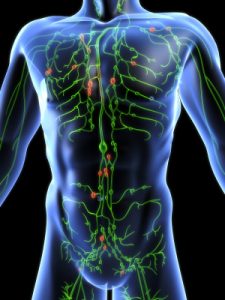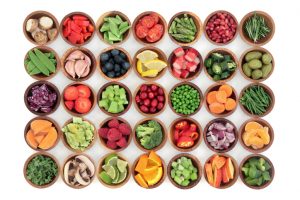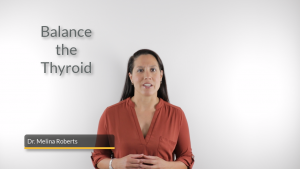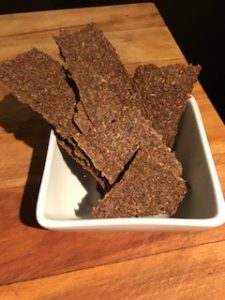September 2018 Newsletter
Welcome!
We are excited to welcome the newest member of the Advanced Naturopathic Family! Kaitlin, her husband and daughter are beyond thrilled to welcome a new baby boy Brighton, weighing in at 8lbs, 4oz, 21 1/4″ long on August 24th.

Upcoming Events

Dr. Melina Roberts will be lecturing for the Swiss Biomedicine Academy in Tempe AZ, Module 1 & 2, September 26-29th.
Introducing Dr. Melina Roberts – Swiss Biomedicine Academy
This is great training for health care practitioner.
Webinar
Dr. Shaun Riddle hosted a webinar for Bioregulatory Medicine Institute on Lyme Disease & Chronic Infections: When Antibiotics Fail on August 22nd.
FREE Video Series
Sign-up for Dr. Roberts’ FREE Video Series: How to Truly Balance the Thyroid
Guest Blog
Dr. Melina Roberts was a guest blogger on Priority One on the topic of Our Lymphatic System

Featured Article
Using a Paleo Template to Support Optimal Health
BY: DR. JULIE MILLER

So, what exactly is the Paleo diet? The Paleo diet focuses on eating a variety of nutrient-dense whole foods such as quality meat, seafood, eggs, vegetables, fruits, healthy fats, nuts and seeds, probiotic and fermented foods, and herbs and spices. It omits foods that are known to cause inflammation, disrupt hormones, and negatively impact the digestive tract including: grains, most legumes, conventional dairy, and all processed and refined foods. One common misconception of the Paleo diet is that it is meat-dominant, but, in actuality, great emphasis is placed on eating copious amounts of veggies (8+ servings/day). Healthy carbs are obtained in moderation from fruit, root veggies such as sweet potatoes, and squash. Also encouraged are generous amounts of healthy fat from avocado, coconut, olive oil, lard and duck fat from healthy animals, and organic clarified butter. There is no calorie counting or strict portion control as this nutrient-dense way of eating is highly satiating and tends to curb carb and sugar cravings. As a general guideline, aim for 50% of calories from animal sources and 50% from plant sources which will translate volume-wise into approximately 75% of the plate from plants and 25% from animals.
- What to Eat:
- Veggies: aim for a wide variety of colorful veggies including cruciferous and leafy greens (choose organic and/or local vegetables and fruits when possible)
- Healthy fat: avocado, coconut, olive oil, lard and duck fat from high quality animals, organic butter or ghee
- Fruits: in moderation; focus on low sugar and high anti-oxidant fruits such as berries
- Meats, Poultry, and Seafood: in moderation; aim for grass-fed pasture-raised meat and poultry and wild-caught sea-food; include organ meat and bone broth
- Eggs, nuts and seeds: in moderation; ideally organic
What to Avoid:
- Packaged, refined and processed foods including sugar and artificial colors and sweeteners
- Dairy: milk, cheese, yogurt, ice cream etc. (however, some people can better tolerate goat dairy)
- Grains and pseudograins: including wheat and gluten-containing grains such as rye, barley, spelt, and kamut; oats; corn; and quinoa
- Legumes: such as beans, lentils, soy and peanuts (legumes with edible pods like green beans are fine)
- Vegetable oils: highly refined oils such as corn, canola, soy, peanut, safflower, and sunflower
While the Paleo approach pulls from ancient dietary principles, it is supported by modern science and nutritional research. There are clinical trials demonstrating its efficacy in reducing the risk of heart disease and cancer, reversing type two diabetes, promoting healthy weight loss, and improving the symptoms of autoimmune disease. Because the paleo diet eliminates foods that contribute to inflammation and gut dysbiosis (overgrowth of undesirable bacteria and yeast the digestive tract) it helps to support a healthy, balanced immune system. Furthermore, nutrient-dense foods support detoxification pathways in the liver while enhancing the assimilation of nutrients and elimination of waste through the digestive tract.
The Paleo diet is also more than just a “diet”; it is a way of life that is meant to be sustainable. Although I recommend that patients initially follow the guidelines more strictly to help facilitate healing and reduce inflammation, once balance is restored, there is often a bit of “wiggle room”. For the majority of people, myself included, this means following the 80/20 (or 90/10) rule where 80-90% of foods are Paleo and 10-20% are not. Furthermore, if tolerated, certain foods, such as white rice, potatoes, high quality organic dairy, and properly prepared legumes may be re-introduced. However, many people still feel their healthiest when they continue to avoid the most inflammatory foods, such as gluten, pasteurized industrially-produced dairy, and refined sugar in that 10-20%.
Featured Therapy
We are now offering!!
Full Body Hyperthermia Dome
Full Body Hyperthermia raises the temperature of the entire body and allows the body to systematically target abnormal cells and pathogens. The patient is in an insulated chamber that uses infrared frequencies to generate heat. The patient’s body is heated to 38.5°C. The head area is kept outside the chamber, protecting it from the heat. The goal is to keep the body temperature raised for 30 minutes to 1 hour. The body temperature is monitored throughout treatment.
This treatment:
- Produces new white blood cells
- Boosts the immune response
- Oxygenates white and red blood cells
- Flags cancer cells with heat shock proteins
- Kills bacteria, virus, fungi, mold
- Detoxifies petrochemicals, heavy metals, neurotoxins
- Activates mitochondrial energy production
Hyperthermia is a powerful therapy for all infectious diseases as well as cancer. With every treatment you reduce your toxic load, reduce infections, increase your immunity and it is anti-angiogenic.
Dr. Rau says “Hyperthermia effects last for 2 weeks. If you do it every week once, you build up more and more immunity, until diseases like Lyme or cancer simply disappear.”
Featured Recipe
Multi-Seed Crackers
Contributed by Dr. Tory Jackson


